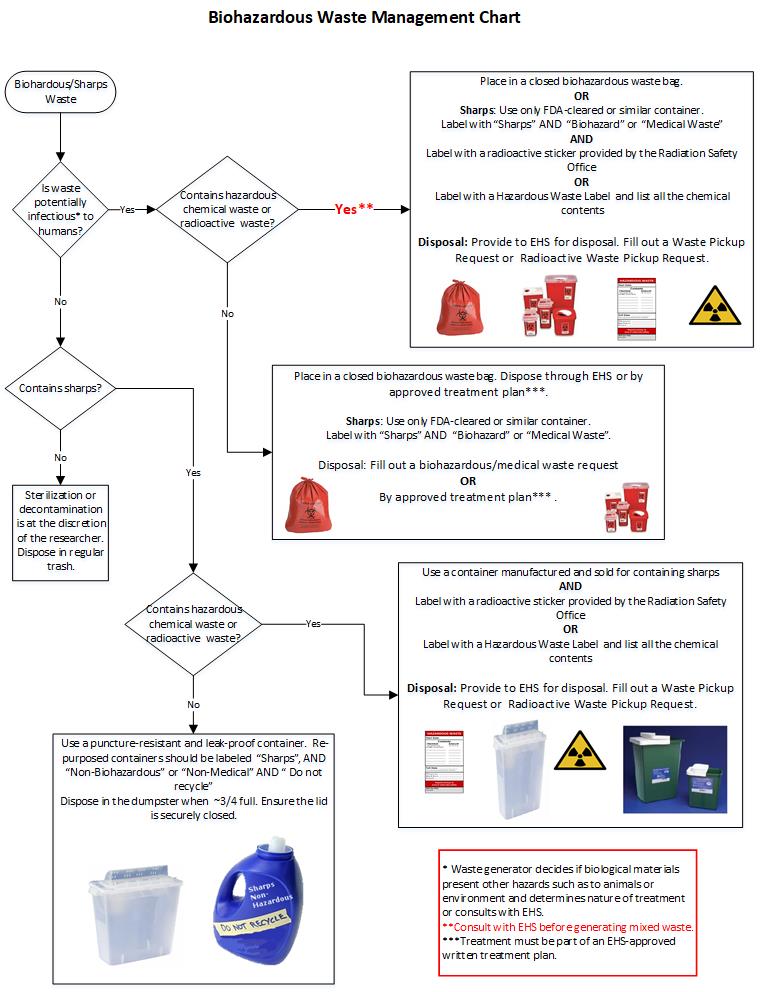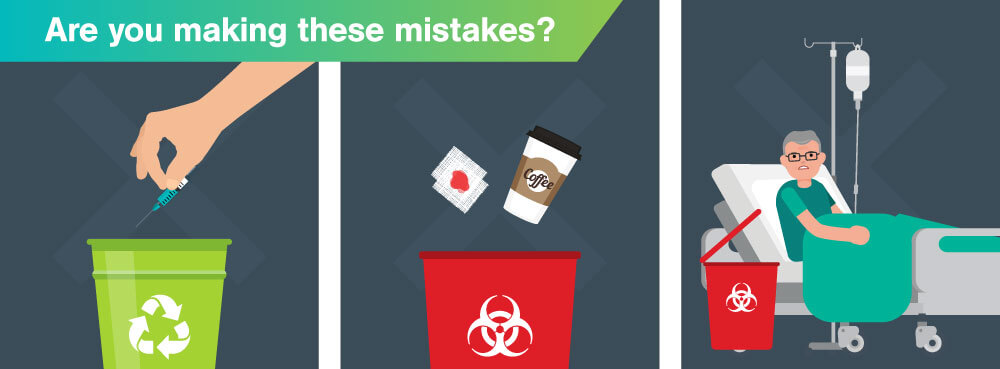Making Certain Safe Handling and Disposal of Medical Waste
Guaranteeing safe handling and disposal of medical waste is of critical relevance in health care settings. Improper management of medical waste can present substantial risks to the atmosphere, public wellness, and healthcare workers. In this introduction, we will check out the significance of proper medical waste monitoring, the dangers connected with incorrect handling and disposal, as well as the guidelines and techniques that can be implemented to ensure its safe disposal.
Value of Proper Medical Waste Monitoring
Correct medical waste administration is of utmost value in guaranteeing the security and wellness of health care professionals, people, and the basic public. Clinical waste describes any kind of waste created by health care facilities throughout the diagnosis, therapy, or immunization of animals or human beings. This waste can present significant health dangers if not taken care of and gotten rid of correctly.
Among the primary factors why appropriate medical waste administration is essential is to stop the spread of contagious diseases. Medical waste, such as used needles, contaminated dressings, and biological materials, can carry hazardous pathogens. If not dealt with and dealt with appropriately, these pathogens can be sent to medical care workers, clients, waste handlers, and also the basic public, resulting in the potential break out of illness.
Additionally, correct medical waste administration assists shield the environment - medical waste disposal. Medical waste consists of dangerous materials, consisting of chemicals, pharmaceuticals, and radioactive substances. When not managed properly, these substances can contaminate dirt, water bodies, and the air, presenting a considerable hazard to environments and public health
In addition, effective medical waste monitoring ensures conformity with worldwide standards and neighborhood laws. Federal governments and regulative bodies have established guidelines and methods to guarantee the secure handling, storage, transportation, and disposal of clinical waste. Abiding by these laws is crucial to avoid lawful repercussions and maintain the online reputation and reliability of medical care centers.
Risks of Improper Handling and Disposal

People can likewise be subjected to these contagious illness if clinical waste is not effectively disposed of. If polluted needles or other sharps are not disposed of in assigned puncture-proof containers, they might unintentionally puncture people, leading to prospective infections. If medical waste is not set apart correctly, there is a risk of cross-contamination between different types of waste, additional boosting the possibilities of condition transmission.
Inappropriate disposal of medical waste can additionally have damaging impacts on the atmosphere and the general public. If clinical waste is not treated and gotten rid of appropriately, it can pollute water sources, dirt, and air, resulting in the spread of toxins and conditions. This can have lasting effects on ecological communities and public health and wellness.
Standards for Safe Handling of Medical Waste
Carrying out reliable protocols for the risk-free handling of medical waste is important in guaranteeing the protection of health care professionals, people, and the public. These standards are vital in lessening the risks related to the handling and disposal of medical waste, such as infections, injuries, and environmental air pollution.
Most importantly, medical care facilities have to develop a detailed waste management strategy that sticks to regional, national, and worldwide policies. This strategy should include clear guidelines on waste partition, product packaging, storage, labeling, and transportation. It is vital to divide various kinds of waste, such as sharps, transmittable products, pharmaceuticals, and non-hazardous waste, to avoid cross-contamination and advertise secure disposal.
In addition, health care employees should get comprehensive training on appropriate waste handling techniques. They ought to be informed on the possible hazards of medical waste, the proper use of personal protective equipment (PPE), and the right treatments for dealing with, moving, and throwing away various kinds of waste.
Furthermore, health care facilities should on a regular basis check and examine their waste monitoring practices to make sure conformity with standards. This consists of conducting routine assessments, examining waste handling procedures, and offering comments and training to employee.
Efficient Techniques for Waste Disposal
To guarantee the risk-free handling and disposal of medical waste, it is necessary to employ effective techniques for waste disposal. Clinical waste can pose substantial risks to public health and wellness and the environment otherwise managed and gotten rid of properly. Healthcare centers and waste administration organizations must implement ideal strategies to reduce these risks.
One reliable technique for garbage disposal is partition. It includes dividing different sorts of medical waste based upon their characteristics. Partition enables the correct treatment and disposal of each waste category, lowering the capacity for contamination or injury. Healthcare centers ought to provide clear guidelines and training to team member on how to set apart waste correctly.

In addition, medical care facilities must work anchor together with licensed waste administration firms to guarantee proper disposal of medical waste. These companies have the proficiency and devices called for to securely handle and dispose of clinical waste in conformity with guidelines and ideal methods.
Training and Education And Learning for Health Care Professionals
Health care experts play a crucial function in making certain the safe handling and disposal of medical waste through comprehensive training and education and learning. It is important for healthcare carriers to have a deep understanding of the possible risks related to medical waste and the proper protocols for its administration. By obtaining correct training, medical care specialists can minimize the prospective transmission of contagious conditions, prevent ecological contamination, and shield both themselves and the basic public.

Additionally, training programs must stress the usage of personal protective equipment (PPE) and correct hand hygiene practices when dealing with clinical waste. medical waste removal. Medical care professionals must know how to appropriately get rid of and use of PPE to safeguard themselves from possible exposure to harmful products. They should likewise be enlightened on the value of regular handwashing and the proper usage of hand sanitizers to decrease the spread of infectious diseases
Proceeding education and routine updates on clinical waste management practices are important for healthcare experts. As guidelines and guidelines develop, it is important to maintain doctor notified regarding any kind of changes in procedures and best techniques. This will certainly guarantee that they remain current and maintain a high requirement of safety in taking care of and disposing of clinical waste.
Conclusion
To conclude, correct handling and disposal of clinical waste is essential to make sure the safety and security of healthcare professionals, people, and the atmosphere. Ignoring to comply with standards and laws can result in various risks and hazards. Executing effective techniques for waste disposal and providing ideal training and education and learning for medical care specialists are important in maintaining a safe health care atmosphere. By adhering to these practices, we can mitigate the potential dangers connected with clinical waste.
Medical waste refers to any waste generated by healthcare centers during the diagnosis, therapy, or immunization of pets or people. If medical waste is not set apart correctly, there is a risk of cross-contamination between different kinds of waste, further raising the possibilities of disease transmission.
It is vital to divide different kinds of waste, such as sharps, contagious materials, drugs, and non-hazardous waste, to prevent cross-contamination and promote safe disposal. WasteX Medical Waste Disposal.
To guarantee the secure handling and disposal of medical waste, it is essential to use effective techniques for waste disposal. Furthermore, medical care centers must develop a regular waste collection and transportation timetable to stop waste accumulation and lessen the threat of accidents or contamination.